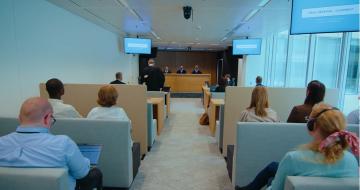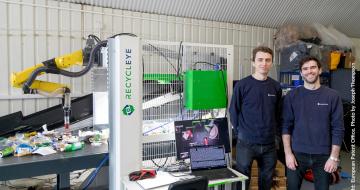During the execution of a public procurement contract, the result of the work carried out by the tenderer can be covered by several different intellectual rights, principally copyright or patent rights, but can also constitute protected know-how.
The contracting authority can then be faced with several issues:
- Does the intellectual property right allow the use of its results by the administration which is the contracting authority?
- How can you ensure that the tenderer respected the intellectual rights of others?
- What is the impact of the obligation of open government?
- Beyond the specific context of public procurement contracts, the question also arises as to who owns the intellectual property to documents or other creations produced by statutory or contractual officials. See Creations in the context of an employment contract.
Intellectual property for the results of public procurement contracts
The intellectual property rights to the work produced by the contractor in order to meet the needs of the public person, the contracting authority, are not automatically transferred to the latter, as is set out in Article 14, § 3 of the General Specifications applicable to all public procurement contracts (Dutch – French).
The use of the results of the public procurement contract, however, may involve acts that require the authorisation of the holders of the copyright, patent rights or other intellectual rights to these results. For example, a study created for the administration is protected by copyright, as is a computer programme specially developed for a public person. A specific technical process developed with the aim of solving a particular problem can be protected by a patent.
The general specifications applicable to public securement contracts state that the contracting authority can use the results of public procurement contracts within the scope of its needs or those of third parties specified in the special specifications, and can claim a patent licence to use the results.
The contracting authority could also obtain the transfer of any rights to the results, if such a transfer is specified in the special specifications, and in case it is necessary for the public authority to use the results of the public procurement contract. For example, the government is not interested in acquiring the patent for a particular lift mechanism developed during the construction of an office block for an administration. Acquiring the copyright to the website developed for an administration, however, is useful for keeping control of and updating the website.
In the event of a transfer of rights or a simple licence, as set out in the special specifications, the contracting authority must be aware of the following aspects:
- For copyright: the moral right of authors cannot be the subject of a transfer or licence and is retained by the creators;
- For computer programmes: it is useful for the special specifications to mention the transmission of the source code to the contracting authority or the modalities for accessing this code. Any integration of open licence software by the contractor must be checked, as it will prevent the contracting authority from using the final software in a non-open model;
- For know-how: the general specifications require the contracting authority to ensure confidentiality regarding the methods and know-how of the contractor, who for his part must transmit these to the contracting authority.
The conditions for the commercial use of the results of the public procurement contract by the tenderer must be set out in the special specifications. If the research and development were partly financed by the contracting authority, they may be owed remuneration. In any event, the contracting authority must be particularly attentive to the clauses on intellectual property rights that will be submitted to them by the tenderer, and check that these conditions give the public person the latitude to use the results of the public procurement contract without restrictions.
If research or a particular service was financed using public funds, the contracting authority should ensure open access to the developed data.
Respect for the intellectual rights of others and information on the contracting authority
The general specifications state that the tenderer must ensure the contracting authority that they will respect the intellectual property rights of others in the course of the public procurement contract.
The tenderer is also obligated to inform the contracting authority of any intellectual rights that are necessary for the performance of the works which they hold or for which they have the licence.
Intellectual rights and administrative publicity
The government is bound to the principle of open government. Therefore, specific rules apply to the use of certain results of public procurement contracts.
The law on administrative publicity insists on access to administrative documents. The copyright held by the administration on certain documents cannot be used to prevent citizens from accessing these documents. If a third party kept the copyright to certain documents, for example when an architect to the construction plans attached to an urban planning permit application, this third party copyright may justify the administration prohibiting citizens from copying these documents, but cannot prevent them being consulted on site. To guarantee the effectiveness of an open government, government bodies should ensure that, for public procurement contracts, they obtain the necessary rights for access by citizens, through a transfer or licence.
Furthermore, the law on the reuse of public sector information of 7 March 2007 encourages administrations to conclude licences with third parties that want to use public data for commercial purposes. The administration cannot invoke a right to public databases in order to refuse to grant these licences. The fact that a third party (for example, the tenderer in a public procurement contract) has intellectual rights to this public data, is an exception to the obligation to encourage the reuse of public sector information.


